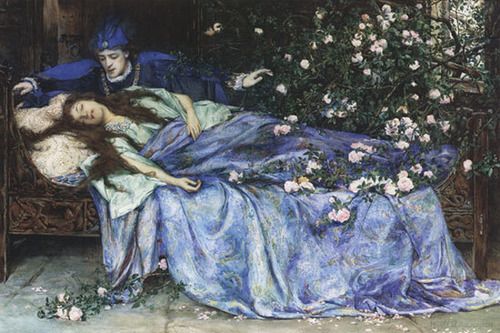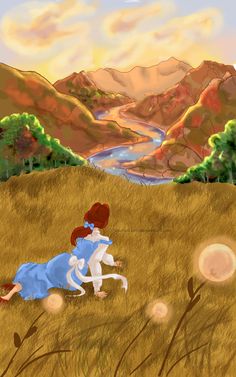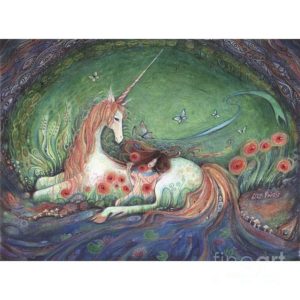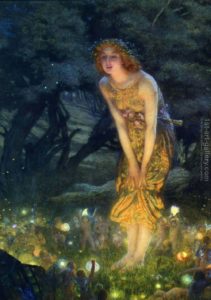Teaching with Tales

Tales, Folklore, Myths and Legends
Why teach them?
I feel like simple articles like this one, get it, but they miss something also. Yes, I hope my children understand a reference to "The Princess and the Pea" - and that hidden joke in the Thor movie but teaching these stories holds historical value as well. They give insight into the ideas of the time. They have philosophical value. It feeds their soul! These stories have been told century after century and they are still relevant and entertaining today. They have stood the test of time for a reason. They teach undeniable and unchangeable philosophical truths.
But aren't the real stories a little much for small children? Shouldn't we be making the stories simpler for them to understand?
Small children CAN and SHOULD be privy to moral debates. Ask my 5 year old if it was right that a friend took another friend's gift on her birthday and she'll tell you EXACTLY why it was wrong and why she wanted to stand up for that friend. Ask yours. Discernment is important to all human beings and moral reasoning is one of the most important aspects of our humanity. Why shouldn't young children begin to practice that skill? Is this not "socialization"? Isn't this what we should be shooting for? If we underestimate them then we do them a disservice. They are not stupid. They are not going to be molded into whatever we mold them into. They are exactly what they are, what they will always have been and we are just along for the ride. Let them show you who they are.
Abridged Versions, Adaptations and Shortened Versions
I was privy to the little tales and stories, they used them in my public school education, but none of them were so brilliantly written as the originals that I have only read as an adult. I found that I had never heard them told in this way and as a child, I never experienced the awe I see in my children's eyes as I read them the originals. I wish I had had that. The abridged versions that I was reading certainly left something to be desired. The quality of what you're reading to them really matters. It can be the difference between truly appreciating a story and taking it to their hearts and storing it in their minds forever, or - being entertained for an hour. Which would you rather? Let them have access to the original classics. The originals are long and have many plot twists and you find yourself built up for a long while. Some of the passion is found in that journey that you can't get from an abridged version or adaptation.

And then there's Disney...
"Disney has done something terrible to this generation." I was sad to hear a friend of mine say this because I was born mid 80's. I even scoffed and secretly thought she was stuck up and ridiculous. I grew up on Disney. Sigh - The farther along in my homeschool journey that I get and as I slowly put away my public school education and put my big girl education on (one that is chock full of culture and history, which my own public school education lacked) I realize that she was right. I wasn't ready to hear this either, but Disney did not come up with any of these stories on his own, rather exploited great tales and used them. Most people know that fact, but still have never reached out and heard the original tales of their favorite Disney stories told to find out how truly different that they are! I love The Little Mermaid as much as the next 80's bopper, but the truth of the matter is, that the Hans Christian Andersen story is incredible. Something was missing until I read the original. Try it. My all time favorite tale that I have read to my children is The Snow Queen. My children pick up themes from movies and other books that have basis in this otherwise unknown but very relevant and beautiful tale. It has such a powerful plot and it happens to be one of the only tales by Hans Christian Andersen with a happy ending.

Happy Endings
I think the biggest deterrent for me starting out reading tales to my children and I think for other parents too, is that they are so dark! There is hardly ever a happy ending. We all know the "Happily Ever After" ending that we see at the end of the Disney movies. (And they are moving away from that themselves.) What value have they lost by removing the realistic ending? I believe they have lost much true value. I am right on the edge of being a Xennial, so I get to have a little bit of deniability when it comes to the Millenial thought processes. Millenials are frequently criticized for not being logical or prudent. I believe that the emergence of feel good stories rather than stories that taught a staunch moral are to blame. Yes, we get a minor lesson in morals from Disney, but they pale in comparison to the original stories. Happy endings leave us with the unreasonable idea that no matter what everything will end in happiness. Which is the more desirable outcome, this? Or that even though things sometimes end in shambles, we can still find positive and pick up and move on with our lives? I think I know which I would prefer.
But don't they teach old ideals?
The great part about tales is, that if the reader disagrees with the moral at hand, that is up for discussion as well! There is a story by Hans Christian Andersen called The Red Shoes - this is a great example of what I am talking about. The story is about a girl who was warned that if she wore a pair of red shoes to church to attract attention to herself, that her vanity would not go unpunished. So the girl does it anyway. The shoes make her dance all day and all night and she can't stop. The story actually turns somewhat nightmarish as she has to cut off her own feet to make them stop! She lives out the rest of her days in piety. At first I thought how ridiculous to have a child read this! But the more that I discussed it with my children I realized that they didn't take from it not to ever care about your outward appearance, but that during the time of Hans Christian Andersen that this was an important moral of the day. This is history. How do they know what the religious thought process of the 1800's, and the Victorian Era was like? The red shoes... they know exactly how people thought. (And they might have learned a tiny lesson in vanity.) They realize it is a silly story, meant to scare children. This was one of the more shocking tales, most are more poetic. But what they took away from the story regarding cultural significance of the day far outweighed any moral teaching that they got from it.
Because IT IS Culture and History, THAT'S Why...
What about Greeks and how they personify their Gods? Does this tell us something about the way that they lived? Possibly even how they saw themselves? Why is that important? How about the differences in how the Vikings viewed themselves and their Gods and Vallhalla? The tales of Anansi and the Spider from Africa? Arabian Nights? They are all different in scope. I think this is very important. You can learn about a culture, era, dynasty, historical figure etc -but until you know how they thought and most importantly, how they viewed themselves and what was important to them, you don't truly know them at all.
How do I start
Undo Disney - I know I'll catch some hate for this - Start by letting them read the stories that their favorite movies are derived from. The idea that "the book is always better than the movie" - rings true especially in this. The books that Disney puts out are void of any real moral or philosophical teaching save "be nice to your friends" and the golden rule. They don't even truly have educational value - they are strictly for entertainment and they are a dry source of entertainment at that. They want the value to be in watching their movies or tv shows, and children reading books -- well, that just doesn't play into their game plan. I'm not saying to swipe the bookshelf with your forearm into the trash. I'm saying - just start offering some beauty to them. It will catch on. When I first started, my 4-5 year old daughter was very much caught up in girl culture. Girl culture is probably the most destructible objective of this generation of children. It is not cool for girls to be smart. Try to find a tv show geared toward little girls that encourages more than friendliness and kindness - try to find one that actually makes girls excited to learn. You will have Dora. Little boys and gender neutral options abound, but the Little Girl Culture worries me for this generation of little girls. Ask yourself what is important to Barbie ... I'll give you a hint ... it's not reading. Barbie, with seemingly little effort on her part has over 1,000 professions... this is a scary idea to give to young children in itself. Things that have value take work.
You can do this!
Changing the way your children see the world takes work, but I promise you, it doesn't take as long as you think and it isn't as hard as you think. Just offer great alternatives - in the beginning they'll pick the story with Ariel on the front, but give it a year and you'll find that they would much rather have the Andersen tale than the dry Ariel tale. It is as simple as you, as the parent making up your mind.
Here are some resources to help you in your journey

Archived Books with Tales
Fairy Tales from Hans Christian Andersen
The Blue Fairy Book by Andrew Lang
The Blue Fairy Book by Andrew Lang (AUDIO)
The Red Fairy Book by Andrew Lang
The Red Fairy Book by Andrew Lang (AUDIO)
The Yellow Fairy Book by Andrew Lang (AUDIO)
The Orange Fairy Book by Andrew Lang (AUDIO)
The Lilac Fairy Book by Andrew Lang (AUDIO)
The Green Fairy Book by Andrew Lang (AUDIO)
The Pink Fair Book by Andrew Lang (AUDIO)
Anansi and the Spider (African Folk)
Gilgamesh and the Lion (Babylonian Folk)
Myths of Babylonia and Assyria
Greek Mythology
Roman Mythology
Myths of Greece and Rome by HA Guerber
Myths of the Norsemen by HA Guerber
Legends of the Middle Ages by HA Guerber
The Story of the Greeks by HA Guerber
American Tall Tales by Mary Pope Osbourne
